(https://doi.org/10.55612/s-5002-052)
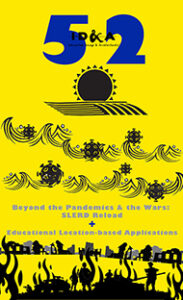
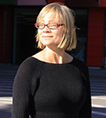
Wolmet Barendregt
has studied the use and design of (educational) technologies for children. She holds a PhD in Interaction Design and a Master in Computer Science. After working in the Division of Learning, Communication and IT, at the Department of Applied IT, University of Gothenburg for 12 years, she moved to Eindhoven University of Technology in The Netherlands in 2019 where she focused on ICT for sustainability while still being engaged with research on children’s interactions with technology. She has conducted research in projects such as EMOTE (Embodied perceptive tutors for empathy-based learning), START (Student Tutor and Robot Tutee), and VASE (Teaching Value-Sensitive Design in Higher Education) and has served on organizing committees and as editor for scientific conferences and journals (e.g., Interaction Design and Children, NordiCHI, International Journal of Child Computer Interaction, Sustainability, and Journal of Cleaner Production). As of September 2022, she will start working as a sustainability consultant outside academia.

Pedro Filipe Campos
is Associate Professor with Habilitation in the Computer Engineering Department of the Faculty of Exact Sciences and Engineering, University of Madeira, since May 2018. He teaches Programming Usable Interfaces, Software Processes and Metrics, Advanced Research Topics and other curricular units related with Human-Computer Interaction and Software Engineering. Pedro holds an Habilitation from the University of Aveiro (Feb. 2018), a PhD in Human-Computer Interaction from the University of Madeira (Oct. 2006), and a BSc and MSc in Informatics and Computer Engineering from the Technical University of Lisbon (2002, 2003). Pedro has published more than a hundred peer-reviewed papers in the fields of HCI, and has participated in the program committee of more than 50 international conferences, and had leading roles in the organization of more than 28 international conferences, serving as president of the program committee, associate chair, local organizer, posters chair, demos chair and others. He is currently the national delegate to the IFIP’s Human-Computer Interaction (TC13), where he is also vice-chair of the 13.6 HWID (Human Work Interaction Design) working group. He co-founded the HWID (Human Work Interaction Design) conference series held every 3 years since 2006, and published by Springer-Verlag. He is Area Editor of the EAI Transactions on Creative Technologies.

Vanessa Cesário
is a Research Scientist holding a PhD in Digital Media and a very enthusiastic Professor at the University of Lisbon, Portugal. She focuses on Human-Computer Interaction (HCI) research in cultural heritage sites and participatory design methods. Vanessa’s doctoral research studies explored how digital technologies can help museums create immersive museum experiences for teenagers through digital storytelling and gamification frameworks. Based on her findings, Vanessa led the production and testing of two interactive mobile experiences for a natural history museum: a story-based approach, and a game-based one. Currently, Vanessa is a postdoc at ITI/LARSyS (ARDITI fellow) in Portugal, researching participatory approaches and co-design techniques to enhance the participation of marginalized communities in cultural heritage. Also, she collaborates in the Horizon 2020 project MEMEX by deploying and evaluating co-design and app re-design workshops with users to inform the MEMEX mobile app. Vanessa’s scientific work on participatory design, user studies and evaluations have been published in many international conferences and journals in the fields of HCI, Museums, and Interaction Design and Children.

Robert Clements
is a neuroscientist who teaches and performs research at Kent State University. He develops and uses different three-dimensional (3D) imaging techniques to understand diseases of the brain, for virtual and physical reconstruction as well as education. His research aims to visualize our brains’ three-dimensional structure for better disease diagnosis and therapies as well as improve how we learn, experience, and perceive 3D environments and objects.

Davidson Cury
Graduated in civil engineering from Federal University of Rio de Janeiro (1971), M.Sc. in informatics from the Pontifical Catholic University of Rio de Janeiro (1986), PhD in electronic and computer engineering from Aeronautical Technological Institute (1996) and post-doctorate from FACED – UGRGS (2013). Currently Full Professor at Federal University of Espírito Santo. Has experience in Computer Science, with an emphasis on Information Systems, working mainly on the following topics: software engineering, human-computer interface design, intelligent agents, learning environments, computing in education.

Mihai Dascalu
is a full professor at UPB, responsible for the courses of Object-Oriented Programming, Semantic Web Applications, and Data Mining and Data Warehousing. He was head of the class in 2009 (e.g., GPA 10/10; ranked 1st across specialization and university) at University Politehnica of Bucharest and holds a double Ph.D. with the highest distinctions in Computer Science and Educational Sciences, with his thesis published as a book in Springer, Studies in Computational Intelligence. He has extensive experience in national and international research projects with more than 300 published papers, including 30 articles at top-tier conferences, 100+ papers indexed ISI at renowned international conferences, and 10+ Q1 journal papers.

Saul Delabrida
Graduated in Computer Engineering at Universidade Presidente Antônio Carlos (2006), Master’s in Computer Science from Federal University of Ouro Preto (2012), and Doctor in Computer Science at the same University (2018). He is a Professor in the Computer Science undergraduate and postgraduate courses and on Professional Master’s in Instruments, Control, and Automation of Mining Process. He is an adjunct professor at the Federal University of Ouro Preto and has experience in computer networks, collaborative systems, distributed systems, ubiquitous computing, embedded systems, and wearable computing. Currently, he works with wearable computing, virtual reality, augmented reality, user studies, and HCI.

Jairo Diniz
Architect and Urban Planner graduated from the Federal University of Ceará – UFC (2015). He works with work focused on landscape architecture and socio-environmental issues in the urban context. Worked in projects of large urban corridors, implementation of parks and squares in several Brazilian cities. Worked as Manager of the Environmental Sustainability Cell of the Municipal Department of Urbanism and Environment – SEUMA, and today works with consulting in urban projects at Quanta Consultoria.

Oguz Orkun Doma
is an architect and a Ph.D. candidate in the Architectural Design Computation program at Istanbul Technical University. Obtained a Bachelor’s degree in Architecture in 2012 and a Master’s degree in Architecture in 2014 from Bahçesehir University. Granted a scholarship from Bahçesehir University in 2013 to attend the M.Arch. program at Virginia Tech WAAC for one semester as a non-degree seeking visiting student. Worked as a Teaching Assistant at Bahçesehir University Faculty of Architecture from February 2012 to August 2014. Worked as a Research Assistant at ITU Faculty of Architecture from September 2014 to July 2021. Professional experience includes architectural design, virtual reality, game design, level design, project management, graphic design and visualization, and teaching in higher education. Academic research areas include architectural design computation, virtual and augmented reality, computer graphics and video games, design cognition, and brain-computer interfaces.

Eva Eriksson
is an Associate Professor at the Department of Information Studies and Digital Design at Aarhus University in Denmark, and previously at Chalmers University of Technology in Sweden. She holds a PhD in Interaction design, and her research focuses on participatory design with children and interaction design in public knowledge institutions

Richard E. Ferdig
is the Summit Professor of Learning Technologies and Professor of Educational Technology at Kent State University. He works within the Research Center for Educational Technology and also the School of Teaching, Learning, and Curriculum Studies. He earned his Ph.D. in Educational Psychology from Michigan State University. He has served as researcher and instructor at Michigan State University, the University of Florida, the Wyzsza Szkola Pedagogiczna (Krakow, Poland), and the Università degli studi di Modena e Reggio Emilia (Italy). At Kent State University, his research, teaching, and service focus on combining cutting-edge technologies with current pedagogic theory to create innovative learning environments. His research interests include online education, educational games and simulations, the role of faith in technology, and what he labels a deeper psychology of technology. In addition to publishing and presenting nationally and internationally, Ferdig has also been funded to study the impact of emerging technologies such as K-12 Virtual Schools. Rick was the founding Editor-in-Chief of the International Journal of Gaming and Computer Mediated Simulations, is the past Editor-in-Chief of the Journal of Technology and Teacher Education, and also serves as a Consulting Editor for the Development Editorial Board of Educational Technology Research and Development.

Gabriela Fretes
is currently working on her doctoral thesis in Educational Technology at the URV (Catalonia), interested in applying the technologies present in smart classrooms to improve the well-being and performance of teachers and students, as well as to alleviate the teaching job stressors. Her academic background is in Psychology, Psychopedagogy and with a Master’s degree in Education and ICT

Enrico Gandolfi
Ph.D., is an assistant professor of Educational Technology at Kent State University with the Research Center for Educational Technology. His research interests include games and simulations for learning, augmented and virtual reality, accessibility and critical design in education, and online communities of inquiry. He is author of several peer-reviewed articles (for academic journals like New Media and Society, British Journal of Educational Technology, Technology in Society, Journal of Gaming & Virtual Worlds, Convergence, Games and Culture, Simulation and Gaming, E-learning and Digital Media, Information Visualization, Feminist Media Studies, International Journal of Information and Learning Technology) and book chapters (for publishers like Routledge, MIT Press, ETC Press) about these topics, and of the monographs Piloti di Console (Edizioni Paoline, 2011), Nerd Generation (Mimesis, 2014) and Independent Videogames (Unicopli, 2015). He has been co-PI and key personnel for several grants awarded by the National Science Foundation, the GAR Foundation, and the National Endowment for Humanities.
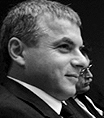
Carlo Giovannella
Graduated in Physics, he worked long time in solid state physics as an expert of complex systems. Nowadays can be considered a ‘Designer for the experience and wellbeing’: expert in the technology-enhanced learning, interaction design, computer-mediated communication, design and management of processes, process and product innovation, ecosystems monitoring and benchmarking. Since 2015 is the President of ASLERD (Association for Smart Learning Ecosystems and Regional Development). It has been the Scientific Director of the Creative Industries Area at the Consorzio Roma Ricerche from 2013 till 2016.
He is member of the Dept. of History, Cultural Heritage, Education & Society of the University of Rome Tor Vergata, where he is chair of the ISIM_garage (Interfaces and Multimodal Interactive Systems), a research lab devoted to design and development of TEL-environments, tools and methods for education, interaction design, and more.

Naska Goagoses
is a postdoctoral researcher and lecturer at the Carl von Ossietzky University of Oldenburg. Her expertise is in the field of educational psychology, with a focus on motivation and social-emotional development during childhood and adolescence. With an inclination for transdisciplinary work, she has been involved in various technology-driven research projects. She was the main online facilitator for the co-design sessions with the children from Namibia, Malaysia, and Finland.

Vincent Guarnieri
is a Sports Scientist who graduated in training and optimization of sports performance at Université Côte d’Azur. In recent years he has been working on the development of an individualized training prescription tool in the form of a mobile application; ‘Selfit’, while maintaining his activity as a strength and conditioning coach.

Camilla Gyldendahl Jensen
has a PhD in Reflective practice-based learning (RPL) and a Master of Science in Architecture and Design. She has been employed at the University of Northern Denmark (UCN) as an associate professor in the Architectural Technology and Construction Management department for 15 years. Her research fields in the Institutional Research program on Reflective Practice-based Learning cover learning theory, design theory, game-based learning, and game theory. She is currently a postdoc at UCN, where she studies the development of digital learning designs based on Experiential Collaborative Learning (ECL) and Reflective practice-based learning (RPL). Recently she has been an external lecturer at Århus University, where she researched the project of VASE (Teaching Value-Sensitive Design in Higher Education) and teaching activities in Game theory.

Helvi Itenge
is an Instructional Technology Designer at NUST in Namibia and a PhD candidate at Queensland University of Technology (QUT) in Australia. Her research focuses on exploring and co-designing emerging technologies to enhance the reading experience of primary learners in Namibia. Through collective research, Helvi worked with young learners from Primary Schools. She ventured in co-facilitating online and in-person workshops. The collaboration with learners, entails exploring emerging technologies, redesigned the reading space, and co-designed reading technology tools. A multitude of technology tools have been created by using co-designing as a development and ideation approach.

Anne Linda Kok
is a user experience designer at a software development company, where she focuses mostly on designing IT applications for healthcare. Prior to starting a career in industry, she leveraged her degree in Human-Technology Interaction to research the user experience of carbon footprint calculators, and to participate in the Erasmus+ project VASE (Teaching Value-Sensitive Design in Higher Education), both at Eindhoven University of Technology in The Netherlands.

Cèlia Llurba
is currently a PhD student in Educational Technology in the Department of Pedagogy at the URV. Her main lines of research are: intellectual learning environments, data analytics and artificial intelligence in intellectual areas. She teaches at URV (Master of Teaching in Secondary School) and also in a Secondary school.

Bianca Lupo
Professor of the Department of Architecture and Urbanism at UMC (Universidade de Mogi das Cruzes) and UNINOVE (Universidade Nove de Julho). PhD Researcher and Master at History and Theory of Architecture at FAU USP (Universidade de São Paulo). Specialist in Museology, Collecting and Curatorship at FEBASP (Centro Universitário Belas Artes de São Paulo). Architect and Urbanist graduated at FAU USP, with exchange experience at Politecnico di Milano (POLIMI, Milan, Italy). She currently studies museum contemporary architecture, with emphasis on technological exhibition design.

Alberto Magni
is a designer and researcher active in experimenting with design to infrastructure and accelerate social change. As a systemic designer for social innovation at SocialFare | Centro per l’innovazione sociale he develops and runs capacity building programs for social innovation among diverse local stakeholders and communities. Previously, he worked as researcher at the Delft Design Lab Participatory City Making at the Delft University of Technology within the EU H2020 research project DESIGNSCAPES, developing a capacity building program for the development and scaling of design-enabled urban innovation in and across European cities. His background in design includes a bachelor’s degree in product design at Università degli Studi di Ferrara (Italy) and a Master’s degree in Design for Interaction at the Delft University of Technology (The Netherlands), parallelly to which he followed the Honors Programme Master researching the capacity building benefits of participatory design processes.

Clice Mazzilli
is an associate Professor at the Department of Design of the School of Architecture and Urbanism of the University of São Paulo (FAUUSP), where she has been teaching since 2001. She is currently vice-coordinator of the Visual Design Research Laboratory (LabVisual); leader of the Research Group (CNPq) Design, Environment, and Interfaces; coordinator of the Double Degree agreement between FAUUSP (Design Course) and the Politecnico di Milano (Scuola del Design); didactic coordinator of the Technical Section of Editorial Production.She was coordinator of the Design Graduate Program at FAUUSP from 2017 to 2021, and of the Undergraduate Design Course from 2006 to 2009. She has a degree in Architecture and Urbanism from FAUUSP (1984), master’s degree (1993) and doctorate (2003) in Urban Environmental Structures from the same institution, in the area of Visual Programming. Gathers experience in the areas of Design, Architecture and Art, working mainly on the following themes: creation processes in design, graphic and environmental visual languages, visual narratives, environmental design, design of ludic spaces, design of the book image.

Ingrid Mulder
is an expert in transformative and social design. As an Associate Professor of Design Techniques at Delft University of Technology, Faculty of Industrial Design Engineering and director of the Delft Design Lab Participatory City Making, she benefits from the city as a space for experimenting with systemic and participatory design approaches to study the emerging role of design in transforming society. Witha background in policy and organization sciences (MA, University of Tilburg) and educational science and technology (Ph.D., University of Twente), she started her research career anticipating future technologies impacting society within the national Top Technology Institute on Telematics. As part of her previous readership in digital social innovation, she founded Creating010, a trans-disciplinary design-inclusive research centre addressing societal challenges in relation to the digital transformation.

Laurentiu-Marian Neagu
is a scientific researcher and currently a Ph.D. student at the both Politehnica University of Bucharest and MINES ParisTech Research Centre in France. Laurentiu has an M.Sc. Computer Science degree at Faculty of Automatic Control and Computer Science from Politehnica. His main areas of research interest are Automated Systems, Intelligent Tutoring Systems, Natural Language Processing Techniques, and Gamification. Over the past 3 years, Laurentiu has been involved in several research projects, aiming to digitize areas of Romanian Literature and integrate several automated systems in such fields.
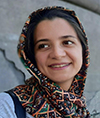
Yasaman Nekoui
is currently a PhD student in Universidad Politécnica de Madrid (UPM) in Architectural Communication field. She received her bachelor’s degree in Architecture and master’s degree in Urban Design from Azad University, Iran. Her areas of interest include the integration of emerging technologies such as Augmented Reality in cities and promotion of children’s presence in urban spaces.

Elisabet M. Nilsson
(PhD) holds a position as senior lecturer in Interaction Design at the School of Arts and Communication (K3), Malmö University in Sweden. Her research interest circulates around matters of sustainability with a focus on tools and methods for prototyping alternative futures and promoting dialogue, collaboration, and learning. Examples of research projects she has worked in are Malmö Living Labs, Living Archives, Norm-creative crisis preparedness, and VASE (Teaching Value Sensitive Design in Higher Education), which she also coordinated.

Ramon Palau
is a researcher and lecturer in the Pedagogy Department of the URV. His current work as a researcher is in ARGET (Applied Research Group of Education Technology) focused in e-learning, digital technologies, digital competences and educational application of digital technologies. In this group he has participated in several research projects. He teaches at URV (Master of Teaching in Secondary School), where is also the director of the program.

James Raber
Ph.D. is the Executive Director overseeing the support, infrastructure and research technology enterprise at Kent State University, the largest R1 institution in Northeast Ohio. His research interests include augmented reality and educational psychology. He has presented at Educause, Microsoft Higher Education Reimagined, and at Ohio Higher Education Computing Council Conference.

Emanuel Ioan Radu
is a Computer Science graduate at the Politehnica University of Bucharest, now enrolled in EIT Digital Fintech Master’s program at Universidad Politécnica de Madrid and Université Côte d’Azur. He’s been working as a Software Developer for the last few years while maintaining his passion for Artificial Intelligence applied in the Sports Domain and Computer Science.

Diego Ricca
Professor of the Department of Design at UFC (Federal University of Ceará). Architect, Designer and Master and PhD candidate in Design at FAUUSP. His area of research and development is the interrelationships between design, technology, and education. Currently focuses on experiments in the field of Augmented Reality, with emphasis on studies of human attention in the interaction process, considering design elements for intrinsic motivation and informal education.

Eric Rigaud
has been a researcher at the Risks and Crises Research Center (CRC) of Mines Paris – PSL* (Sophia Antipolis) since September 2005. His research aimed at designing, developing, and experimenting with methods and tools prototypes intended to support individuals, businesses, and territories in their efforts to reduce their vulnerabilities and improve their ability to deal with unwanted situations.

Eduardo Roig
is PhD Architect and Associate Teacher of the Drawing, Analysis and Creation at the ETSAM (UPM) and Architectural Design (ESNE). His PhD thesis The Augmented Environment was exhibited at 17th Biennale di Venezia. As scientific expert evaluator he is contracted by EU Marie Sklodowska-Curie Actions. He combines teaching and research with his professional activity based in COMBO LAB.

Erkki Rötkönen
is a principal in an elementary school in Turku, Finland, and a PhD candidate in the University of Turku in Finland. He has a demonstrated history of working in education with special interest in educational technology, and pedagogy and curriculum development. His research focuses on innovative technology-enabled learning ecologies such as Remote Presence and Virtual Reality and enabling distributed hybrid learning and co-design spaces to connect learners around the globe. His research and work reflect the creation of smart connected design-based learning ecosystems with objectives to develop technologies, techniques, methods and models framed in pedagogical and design-based theories grounded in empirical co-design work with learners from different continents.

Razvan Rughinis
is a professor and manager experienced in designing and delivering engineering courses and applied research in Computer Networking, Security, Computer-Supported Collaborative Learning, Human-Computer Interaction, and Operating Systems at the Politehnica University of Bucharest. Proven skills in bringing together academic and industry partners in energetic projects and events. Oriented towards achieving meaningful and enduring results. Focus on excellence in teaching and student evaluation, fostering enthusiastic and competitive teams, and developing knowledge production and sharing in the IT&C community.

Sinan Mert Sener
is an architect and a full professor at ITU Faculty of Architecture in Istanbul. Graduated from Istanbul Technical University Faculty of Architecture in 1982. Received his Master’s degree in Architecture in 1984 and his Ph.D. degree in 1994 from ITU. Worked as an Assistant Professor in the Department of Architecture of ITU Faculty of Architecture, between 1994 and 1995. In 1997, appointed as Associate Professor to ITU Architecture Department. Awarded the ‘Young Researcher Scholarship’ by the ITU Foundation and was a postdoctoral scholar at Carnegie Mellon University from 1998-1999. Appointed to ITU Faculty of Architecture as a professor in January 2011. Elected as the Dean of ITU Faculty of Architecture in November 2012 and held his position until July 2016. His research areas include informatics in architecture and design, architectural design theory, urban design, shape grammars, computer-aided architectural design, post-disaster settlements, and emergency management. Designed many architectural projects such as mixed-use buildings, residential settlements, special building designs such as VTS towers, urban design and university campus, and almost all of them have been built.

Crediné Silva de Menezes
Graduated in Mathematics (UFAM, 1976), M.Sc. in Software Engineering (PUC-Rio, 1983), Ph.D. in Artificial Intelligence (PUC-Rio, 1989) and, post-doctorate in the Doctoral Program in Informatics in Education (PGIE- UFRGS, 2006). Currently, a Full Professor at the Federal University of Rio Grande do Sul (Brazil). Has experience in Computer Science, acting in Artificial Intelligence in Education. His research interests focus on the following themes: learning computer programming, Computational Thinking, digital objects for interactionist learning, Games and learning, Pedagogical Architectures for Connected Learning, and Smart Learning Ecosystems.

Pedro Silveira
Graduated in Computer Science (2009), M.Sc. in Informatics (2012) and PhD in informatics (2022) from the Federal University of Espírito Santo (UFES). Has experience as a university professor and in acting as a systems analyst mainly in the areas of Databases and Systems Development. Currently Full Professor at the Federal Institute of Espírito Santo – Campus de Alegre. His research interests focus on the following themes: smart environments to support learning, computers and education, distance education mediated by digital networks and learning ecology in digital culture.

Duarte Luis Sousa
is an interdisciplinary designer with a UX & Visual Communication (VC) background. He holds a Design degree and MSc in Informatics and Computer Engineering from Universidade da Madeira (2008, 2022) focusing on Design Research, Human-computer Interaction, User-Centered Design, Community-Based Participatory Research and Community Participation in which he explored the use of interactive digital technologies’ use on the education system amid the Covid-19 Pandemic and how a community-based interactive system can solve some of pre-existent learning impairments emphasized during such period. Duarte’s work on User-Centered Design, Community-Based Participatory Research and Community Participation have been published in many international conferences and journals in the fields of HCI.

Erkki Sutinen
is Professor of Computer Science (Interaction design) at the University of Turku since 2015. He has been researching educational technology, Computing education, ICT4D, and co-design. In 1999-2015, he was a professor at University of Eastern Finland (1999-2009 University of Joensuu) where he founded a research group in educational technology, hosting an online PhD program impdet.org. In 2010-12, he was the chief technical advisor of the 22 M€ STIFIMO science, technology and innovation program in Mozambique. He moved to Namibia in 2019 to set up the first overseas campus of University of Turku, located currently at the premises of University of Namibia, in its main campus in Windhoek.

Daniel Yong Wen Tan
is a senior lecturer and director of Drone Research and Application Centre at the University of Technology Sarawak. His field is in information systems, focusing on sport performance analysis and drone application. His role in the project was to co-ordinate the children from Malaysia and conduct co-located sessions with children from Malaysia.

Sébastien Travadel
is Professor at MINES Paris in data science with applications to risk management. Previously he was co-founder and R&D manager of a startup specialized in big data analysis for the optimization of aircraft fleets.
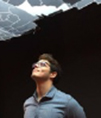
Leonardo Veras
Architect and Urban Planner graduated from the Federal University of Ceará (UFC). Worked with architecture and interior design and participated in an award-winning project for the city of Fortaleza (Brazil) in the UNESCO’s Creative Cities initiative. Nowaday works as na architecture and graphic designer and studies Contemporary Architectural Design in postgraduate program from the Federal University of Ceará (UFC).
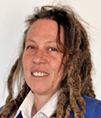
Heike Winschiers-Theophilus
is a Professor in the Computer Science Department at Namibia University of Science and Technology (NUST). Her research concentrates on co-designing technologies with indigenous communities and children either co-located in Namibia or distributed online in transdisciplinary teams. She is concerned with co-creating alternative learning ecologies; generating inclusive educational tech innovations and improving co-design methods with children. She leads a local inclusive and collaborative technology innovation hub, under which novel edutech applications are developed and piloted with a Namibian partner school.

Tariq Zaman
is an Associate Professor and Director of the Advanced Centre for Sustainable Socio-Economic and Technological Development (ASSET) in University of Technology Sarawak, Sibu Malaysia. His projects and research publications equally reflect the multiple voices of indigenous wisdom and cultural understanding by converging local, scientific, traditional and cultural knowledge. He supported and mentored the participation of Malaysian children and students in the co-design session workshops.
